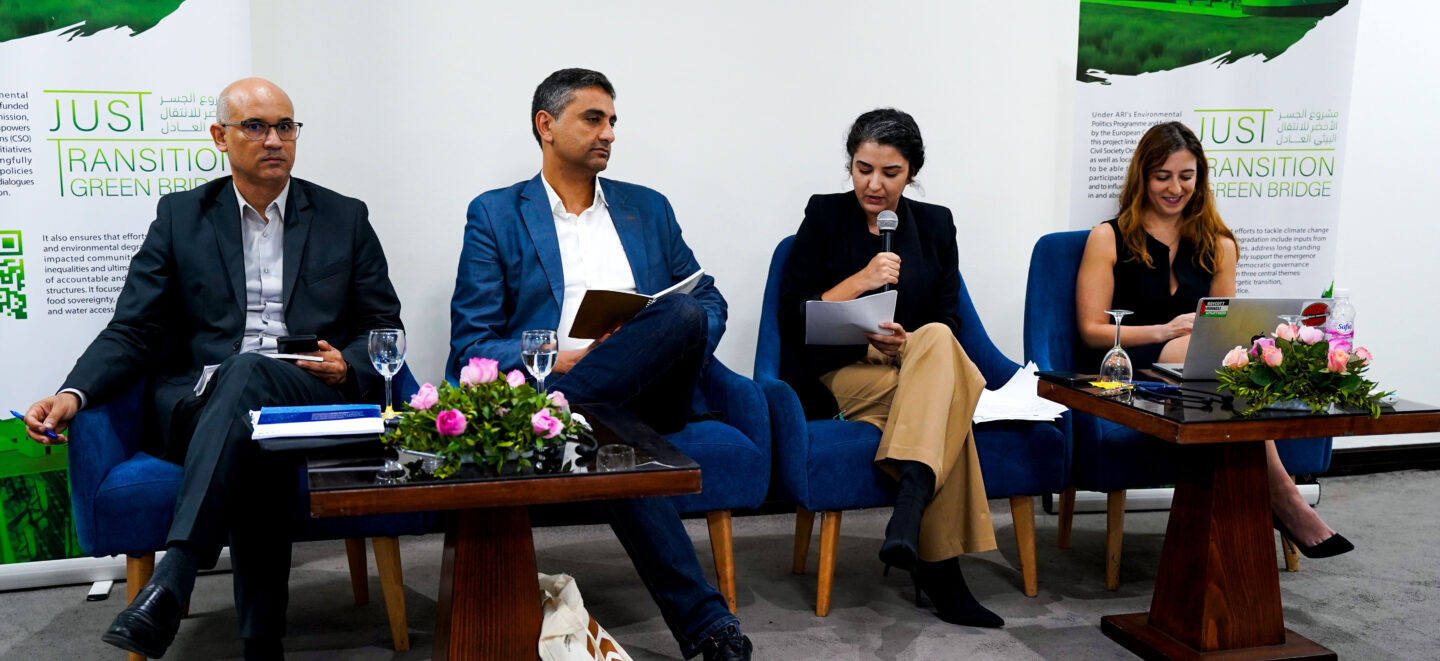Green Colonialism And Energy Transition: A Tunisian Case Study

Welcome to your ultimate source for breaking news, trending updates, and in-depth stories from around the world. Whether it's politics, technology, entertainment, sports, or lifestyle, we bring you real-time updates that keep you informed and ahead of the curve.
Our team works tirelessly to ensure you never miss a moment. From the latest developments in global events to the most talked-about topics on social media, our news platform is designed to deliver accurate and timely information, all in one place.
Stay in the know and join thousands of readers who trust us for reliable, up-to-date content. Explore our expertly curated articles and dive deeper into the stories that matter to you. Visit Best Website now and be part of the conversation. Don't miss out on the headlines that shape our world!
Table of Contents
Green Colonialism and Energy Transition: A Tunisian Case Study
The global push for renewable energy and a greener future presents a complex paradox. While the transition away from fossil fuels is crucial for combating climate change, the methods employed often exacerbate existing inequalities and neo-colonial power dynamics. This phenomenon, termed "green colonialism," is increasingly evident in developing nations, and Tunisia offers a compelling case study. This article explores the challenges and complexities of Tunisia's energy transition, highlighting the potential pitfalls of a poorly managed green agenda.
Tunisia's Energy Landscape: A History of Dependence
Tunisia, like many North African nations, has historically relied heavily on fossil fuels, primarily natural gas, for its energy needs. This dependence has left the country vulnerable to price fluctuations and geopolitical instability. The pursuit of energy independence and diversification has driven the adoption of renewable energy sources, primarily solar and wind power. However, this transition is not without its challenges.
The Allure and the Pitfalls of Foreign Investment
Significant foreign investment is fueling Tunisia's renewable energy projects. International organizations and private companies are pouring funds into large-scale solar and wind farms. While this investment is crucial for infrastructure development, it raises concerns about control and ownership. Critics argue that these projects often prioritize the interests of foreign investors over the needs and benefits of the Tunisian population. This can manifest in several ways:
- Land Grabbing: Large-scale renewable energy projects can displace local communities and impact traditional land use, leading to social unrest and economic hardship.
- Lack of Local Participation: The expertise and workforce needed for these projects are frequently imported, limiting opportunities for skill development and employment within Tunisia.
- Profit Repatriation: Profits generated from these energy projects often flow back to foreign investors, hindering the potential for economic growth and development within Tunisia itself.
- Environmental Concerns: While renewable energy is inherently cleaner than fossil fuels, the environmental impact of large-scale projects, such as habitat destruction and water consumption, must be carefully considered and mitigated.
A Need for Equitable and Sustainable Solutions
To avoid the pitfalls of green colonialism, Tunisia needs to prioritize a more equitable and sustainable approach to its energy transition. This requires:
- Increased Local Ownership and Control: Greater emphasis should be placed on empowering local communities and businesses to participate in the renewable energy sector. This includes supporting the development of local expertise and ensuring fair profit sharing.
- Community-Based Projects: Smaller-scale, community-owned renewable energy projects can provide more direct benefits to local populations and minimize environmental disruption.
- Transparent Governance: Open and accountable governance is crucial to ensure that the energy transition benefits all Tunisians, not just a privileged few. This includes robust environmental impact assessments and community consultations.
- Focus on Energy Efficiency: Reducing energy consumption through improved efficiency measures is equally important and can significantly reduce reliance on renewable energy sources in the long term.
Conclusion: Charting a Just Transition
Tunisia's energy transition presents a critical juncture. By proactively addressing the challenges of green colonialism and prioritizing equitable and sustainable solutions, Tunisia can harness the potential of renewable energy to achieve energy independence and drive sustainable economic development. Failing to do so risks perpetuating existing inequalities and undermining the very goals of a just and equitable energy transition. The international community has a crucial role to play in supporting Tunisia and other developing nations to navigate this complex path towards a truly sustainable future, one that prioritizes both environmental protection and social justice. Further research and ongoing dialogue are essential to ensure that the energy transition serves as a catalyst for positive change, rather than a new form of exploitation.

Thank you for visiting our website, your trusted source for the latest updates and in-depth coverage on Green Colonialism And Energy Transition: A Tunisian Case Study. We're committed to keeping you informed with timely and accurate information to meet your curiosity and needs.
If you have any questions, suggestions, or feedback, we'd love to hear from you. Your insights are valuable to us and help us improve to serve you better. Feel free to reach out through our contact page.
Don't forget to bookmark our website and check back regularly for the latest headlines and trending topics. See you next time, and thank you for being part of our growing community!
Featured Posts
-
 Cincinnati Reds St Louis Cardinals Series A Preview June 20 22
Jun 21, 2025
Cincinnati Reds St Louis Cardinals Series A Preview June 20 22
Jun 21, 2025 -
 Charlie Woods U S Junior Amateur Appearance A Look Ahead
Jun 21, 2025
Charlie Woods U S Junior Amateur Appearance A Look Ahead
Jun 21, 2025 -
 Follow The Cws Bracket Scores Schedule And Finals Updates
Jun 21, 2025
Follow The Cws Bracket Scores Schedule And Finals Updates
Jun 21, 2025 -
 Top 10 Highest Valued Sports Team Acquisitions Lakers Lead At 10 Billion
Jun 21, 2025
Top 10 Highest Valued Sports Team Acquisitions Lakers Lead At 10 Billion
Jun 21, 2025 -
 Shedeur Sanders Faces Speeding Ticket Consequences
Jun 21, 2025
Shedeur Sanders Faces Speeding Ticket Consequences
Jun 21, 2025
